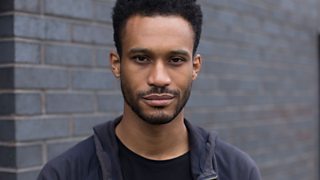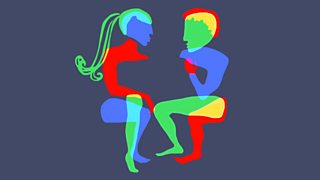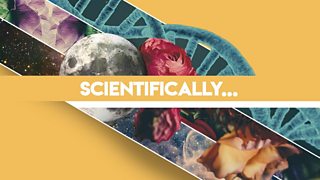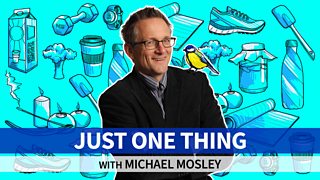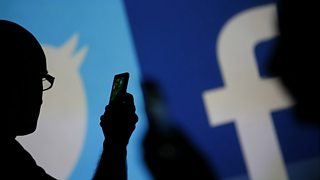Is social media ruining our lives?
On social media, we can communicate with friends, businesses and other organisations more quickly and in a way that seems more transparent and accountable than ever before.
So, surely social media enhances our lives? On the other hand, our choices on social media are constantly being guided by an algorithm designed with a specific purpose – to make the user engage more with the platform they’re on.
For Radio 4's One to One, content creator and "digital native" Marcus Smith interviews Tristan Harris, a former Google employee and co-founder of the Centre for Humane Technology, and whose mission for tech companies to switch their focus from profit to the common good was featured in the acclaimed Netflix documentary, The Social Dilemma.
Facebook, Instagram, Twitter etc. might all be free at source, but Tristan argues that we’re paying a heavy price for their use.

What are the downsides to online living?
Marcus is well aware of the impact of technology on our lives, not just through his work but from his leisure activities too, as he would often notice that the friends he played football with would avidly check their online bets during half-time.

Although Marcus’s focus overall is on the "Tech for good" movement, he recognises that there are a lot of problems with a life online.
Among the many downsides he references are: addiction, isolation, depression, anxiety, psychological manipulation, social division, fake news and misinformation.
Why is social media so problematic?
Tristan acknowledges that there are good things social media can do, for example in reconnecting people and in streamlining healthcare, however, he believes that it’s ultimately skewed against us.
“We are worth more to social media companies when we're addicted, outraged, polarised, narcissistic, sleepless and disinformed,” says Tristan, “because that means the business model of getting our attention is successful.”
-
![]()
Seriously… Bursting the Social Network Bubble
Bobby Friction is addicted to social media, but the bubble is starting to suffocate him. We follow his attempts to break free of the filtered boundaries of his social network.
Do we need to take a step back?
Admitting that the human race and its systems of government can’t keep pace with technology will, according to Tristan, mean “slowing down some innovation”.
Social media profits by putting each person into their own echo chamber.
However, he believes this is an opportunity to produce innovation that strengthens the capacities of the society as opposed to degrading them.”
What most concerns Tristan is the threat to democracy and a common understanding of what is real.
“Social media profits by putting each person into their own echo chamber,” he warns, “because that's more successful at getting your attention when you have your own worldview reinforced to you endlessly on a news feed than if I showed you a more complex and nuanced view of reality”.
-
![]()
The hidden clues that reveal who you are
Whatever we do online or in the real world, we leave traces of ourselves behind. Is the age of anonymity over?
What’s at stake if we don’t?
For Tristan the most immediate problem that could be exacerbated by a lack of shared understanding and reality is the climate crisis. “We have a finite amount of time to basically agree that it's even happening and to take action, which we should have done, honestly, 40 years ago.”
The problems created by social media are, Tristan believes, a reflection of our economic system. “So long as a whale is worth more dead than alive, and a tree is worth more as two by fours than as a tree – in this model where we are the product – we're worth more as dead slabs of human timber, dead slabs of addicted, outraged, polarised and disinformed human behaviour.
"That's instead of the alive, enlightened, wise human that we all have the capacity to become.”
-
![]()
Listen to One to One: Tech for Good
Tristan Harris talks to Marcus Smith about the damage social media is doing to society.

Discover more from Radio 4…
-
![]()
One to One
Broadcasters follow their personal passions by talking to the people whose stories interest them most
-
![]()
��������Գپ��ھ�����������…
The home of the best science programmes from ����ý Radio 4.
-
![]()
Just One Thing with Michael Mosley
Michael Mosley reveals surprisingly simple top tips that are scientifically proven to change your life.
-
![]()
The Secret History of Social Networking
Rory Cellan-Jones traces the roots of social networking from the counterculture of the 70s, through early bulletin boards and the first networks on the World Wide Web.


